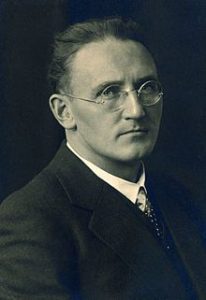Viena, 1958 (Audio)
Director: Hermann Scherchen
Archivos para descarga:
- http://www.mediafire.com/?k7efmxppa4ae041
- http://www.mediafire.com/?ylevz88wxac8fgl

Scherchen
Comentarios
The eminent German conductor, Hermann Scherchen (1891-1966), was mainly self taught in music. He learnd to play the viola and was a violist from 1907 to 1910 in the Berlin Blüthner Orchestra and on a temporary basis at the Berlin Philharmonic Orchestra. He met Arnold Schoenberg and made his debut with A. Schoenberg’s Pierrot lunaire in 1912.
In 1914 Hermann Scherchen became conductor of the Riga Symphony Orchestra. He was interned in Russia during the First World War. In 1918 he returned to Berlin and founded the New Music Society and a string quartet that bore his name. One year later he created Melos, a journal devoted to contemporary music. In 1920 he was reader at the Berlin Music College. He took over the Leipzig Concert Association Orchestra in 1921 and succeeded Wilhelm Furtwängler as conductor of the Frankfurt Museum concerts. From 1923 (until 1947) he worked regularly with the Winterthur Orchestra and was director of the Winterthur Collegium Musicum for a time. In 1923 he was a founder member of the International Society for Contemporary Music, on whose behalf he also appeared as conductor. In 1928 he moved to Königsberg where he was chief musical director (until 1931) and principal conductor (until 1933) of the Eastern Radio Symphony Orchestra. In 1933 he left Germany and worked as guest conductor in various countries. He created orchestras and journals in Brussels, Vienna and Switzerland, all with the name Ars Viva or Musica Viva and all devoted to contemporary music. From 1944 to 1950 he was conductor of the Zurich Radio Orchestra, which was renamed Beromünster Radio while he was working there. After the Second World War he gave classes at the Venice Biennale and in Darmstadt. In 1950 he founded the Ars Viva publishing house in Zurich, publishing forgotten or unknown works by classical and contemporary composers. He was also interested in electro-acoustic music and with the support of UNESCO founded a sound studio in 1954 in Gravesano (Switzerland). From 1959 to 1960 he was conductor of the North-West German Philharmonia, his last permanent post. Scherchen is certainly one of the most important figures in the world of music in the twentieth century. He unearthed new talents but without neglecting old traditions. Even today, his interpretations of Mozart and the Romantics are unequalled. Scherchen was one of the few conductors who conducted without a baton.
Hermann Scherchen was responsible for many important first performances, including works by A. Schoenberg Chamber Symphony no. 1 (1911), Alban Berg Three Fragments from the Opera Wozzeck (1924) Der Wein (1929) and Concerto for Violin and Orchestra (1936), Alois Haba Matka (1930), Karl Amadeus Hartmann Miserae (1934) and Symphonic Overtures (1947), Albert Roussel Aeneas (1935), Anton Webern Variations Op. 30 (1943), Richard Strauss Symphony for 13 Wind Instruments (1946), Luigi Dallapiccola Il prigioniero (1950) and Canti di liberazione (1955), Paul Dessau Das Verhör des Lukullus (1951), Karlheinz Stockhausen Kontrapunkte 1 (1953), Edgar Varese Deserts (1954), Hans Werner Henze König Hirsch (1956), Boris Blacher Abstract Opera No. 1 (1957), Iannis Xenakis Pithoprakta (1957), Achorripsis (1958) and Terreteklorh (1966) and Claude Ballif A Cor et a cri (1962).
Publications: Lehrbuch des Dirigierens (A Textbook of Conducting, Leipzig 1929, Mainz 1956 and 1972); Das moderne Musikempfinden (Feeling for Modern Music, Zürich 1946); Musik für jedermann (Music for Everyone, Winterthur 1950); Alles hörbar machen (So that everything may be heard: a collection of letters, 1972).
